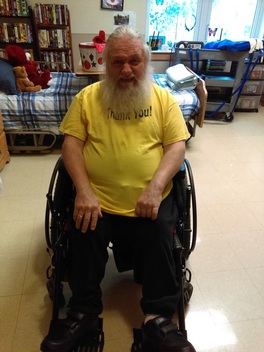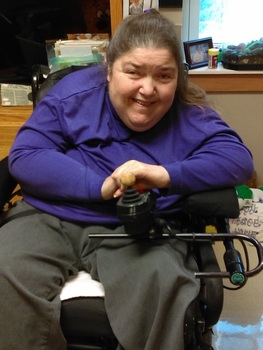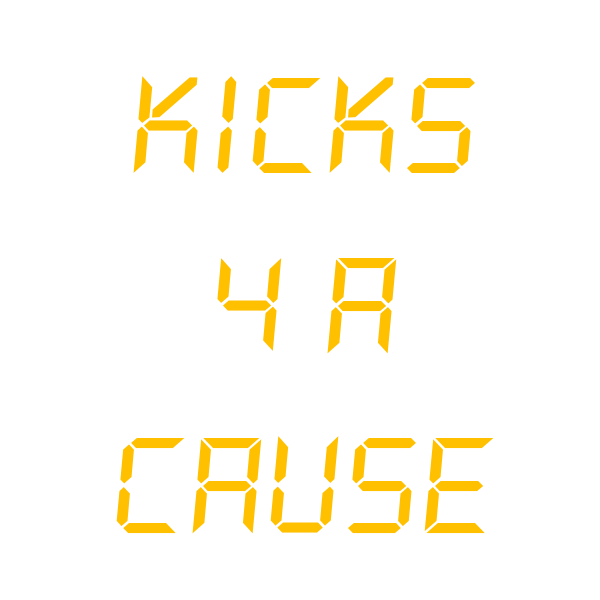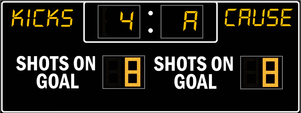Event Planning:
I decided to further plan my charity event to benefit those who are disabled and help them achieve their dreams. For this portion of planning I wanted to secure sponsors as well as a venue. I also wanted to create and finalize a logo to represent the event.
Is the ADA Really Effective?
Part of me being able to help people with disabilities is making sure that something like the Americans with Disabilities Act is doing it's job. To find this out I interviewed three residents at Magaret E. Moul Home to get their stories and experiences with the ADA. I figured that getting stories from people who were directly affected by the ADA would help me accurately depict whether or not the ADA is doing it's job. I was also interested to look at how disabled people with varying levels of education affected what the ADA did for them. Nancy, Deb, and John gave me great information which gave me the ability to come to a decision on the ADA.
Analysis of interviews/Deciding if the ADA is effective:
To start off, I wanted to know if the ADA was effective or not. I wanted stories from people who were directly affected by this act. Luckily my mother is a CNA and works at a home for those who are disabled. I talked to her and decided who I would be interviewing. Now that I had figured out the when and where for the interviews, I wanted to be able to take opinions from those with different levels of education to get a better understanding of how the ADA affects those who are disabled that may or may not have any education. I also wanted to touch on those who might have a less than average or minimal education rather than none at all.
As the ADA is supposed to bring more opportunities to those who are disabled, and help them be treated more fairly. And a big thing about the ADA is if people with different education levels are treated differently, and if they get different amounts of opportunities. I interviewed three people, John, Deb, and Nancy. All three have CP. John has little to no education, and cannot read. He is in a wheelchair and is slightly flighty, but still majorly well functioning brain-wise. As he is a very friendly and jovial person, he had little to no complaints other than that the ADA took away the CPPPSD. This organization took care of him while he was at home. He had little contact with the ADA and has little to no job experience.
In his case the ADA doesn’t affect him nearly at all, because of his lack of education and job experience. I started to doubt the effectiveness of the ADA, as John wants to work and help others. The second person I interviewed was Deb. She was slightly more educated than John, but still had a minimal amount of education. When I asked her question about the ADA, she didn’t have much to say about anything to do with jobs. She focused more on accessibility in public. Whether that be bathrooms, restaurants, or buildings in general. Accessibility is a lesser thought of portion of the ADA than job opportunities. She believed that the ADA should be more strict and require extensive or substantial improvements to handicap accessibility in public areas. This further proved my theory that the ADA is ineffective.
The third and final person I interviewed was Nancy. She went all the way through high school, and continued to graduate nursing school. She still had the ability to walk with braces on her legs. She was denied a job at a supply factory along with others. She no longer has the ability to walk, but still has full mental capabilities. Other than her being denied a job she had no other substantial complaints about the ADA.
After looking at all three of these individuals and hearing their stories and interactions, or lack thereof with the ADA, I was leaning towards the decision that it was ineffective. While Deb and John had no major complaints about the job the ADA was doing, there were still problems that needed to be fixed. These problems were the things that they had pointed out and wanted to change. Nancy on the other hand had a major problem with the ADA as she was denied a job although she was fully mobile and highly educated. Nancy had little to no complaints regarding the little things the ADA does or doesn’t do.
All in all, I feel that ADA could definitely improve. Some problems the residents pointed out are simple common sense things that should be done if we want to welcome the disabled almost anywhere in the public, and to provide a sense of equality. As well as helping people like Nancy who are mobile and educated to get jobs. Rules should be made and enforced that if you are capable and meet all other requirements for a job, you get a fair shot at getting hired. One other thing I’d like to add, is that if the ADA wants to get the disabled opportunities i.e. jobs, they have to make sure those who want to work and get hired meet requirements. Requirements like the ability to read for example, along with many others that many of those who are disabled don’t have. This is something that needs to change if the ADA is to be effective.
As the ADA is supposed to bring more opportunities to those who are disabled, and help them be treated more fairly. And a big thing about the ADA is if people with different education levels are treated differently, and if they get different amounts of opportunities. I interviewed three people, John, Deb, and Nancy. All three have CP. John has little to no education, and cannot read. He is in a wheelchair and is slightly flighty, but still majorly well functioning brain-wise. As he is a very friendly and jovial person, he had little to no complaints other than that the ADA took away the CPPPSD. This organization took care of him while he was at home. He had little contact with the ADA and has little to no job experience.
In his case the ADA doesn’t affect him nearly at all, because of his lack of education and job experience. I started to doubt the effectiveness of the ADA, as John wants to work and help others. The second person I interviewed was Deb. She was slightly more educated than John, but still had a minimal amount of education. When I asked her question about the ADA, she didn’t have much to say about anything to do with jobs. She focused more on accessibility in public. Whether that be bathrooms, restaurants, or buildings in general. Accessibility is a lesser thought of portion of the ADA than job opportunities. She believed that the ADA should be more strict and require extensive or substantial improvements to handicap accessibility in public areas. This further proved my theory that the ADA is ineffective.
The third and final person I interviewed was Nancy. She went all the way through high school, and continued to graduate nursing school. She still had the ability to walk with braces on her legs. She was denied a job at a supply factory along with others. She no longer has the ability to walk, but still has full mental capabilities. Other than her being denied a job she had no other substantial complaints about the ADA.
After looking at all three of these individuals and hearing their stories and interactions, or lack thereof with the ADA, I was leaning towards the decision that it was ineffective. While Deb and John had no major complaints about the job the ADA was doing, there were still problems that needed to be fixed. These problems were the things that they had pointed out and wanted to change. Nancy on the other hand had a major problem with the ADA as she was denied a job although she was fully mobile and highly educated. Nancy had little to no complaints regarding the little things the ADA does or doesn’t do.
All in all, I feel that ADA could definitely improve. Some problems the residents pointed out are simple common sense things that should be done if we want to welcome the disabled almost anywhere in the public, and to provide a sense of equality. As well as helping people like Nancy who are mobile and educated to get jobs. Rules should be made and enforced that if you are capable and meet all other requirements for a job, you get a fair shot at getting hired. One other thing I’d like to add, is that if the ADA wants to get the disabled opportunities i.e. jobs, they have to make sure those who want to work and get hired meet requirements. Requirements like the ability to read for example, along with many others that many of those who are disabled don’t have. This is something that needs to change if the ADA is to be effective.
Residents from MEMH:
Contacting Possible Sponsors:
I wanted to target businesses that sponsored MEMHs' Dare 2 Dream run, hoping that since my event would be benefitting the same people. As well as local businesses and companies. I contacted; Glatfelter Insurance, Flying Feet, York Divers, Fulton Bank, VFW post 2453, and Ettline Foods. I also needed to secure a venue, preferably indoors. So I contacted; Yellow Breeches Sports complex, Heritage Hills, and In The Net.





